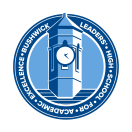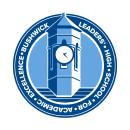School Vision
Bushwick Leaders’ High School for Academic Excellence is a small community high school whose vision is to provide our learning community with a rigorous, collaborative, and culturally responsive academic program that encourages students to think critically, engage in meaningful discussions, and develop 21st-century skills to become responsible, intellectually engaged members of society and lifelong learners, ultimately preparing them for a secure economic future.

